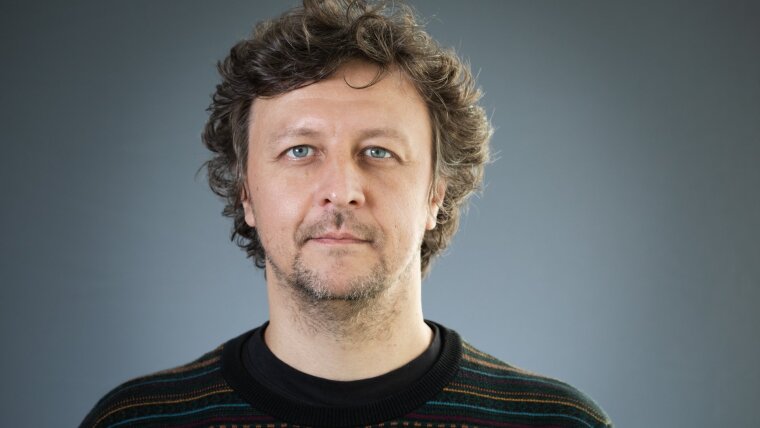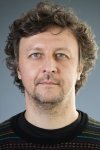
Prof. Iwan Schie
Image: Sven DöringProf. Dr. Iwan SCHIE
Email: iwan.schie@eah-jena.de
Phone: +49 3641 205-637
Prof. Dr. Iwan Schie is a distinguished expert in biomedical engineering at the Ernst Abbe University of Applied Sciences (EAH) Jena, where he serves as a professor in the Department of Medical Engineering and Biotechnology and heads the research group "Biophotonic Instrumentation". His academic journey includes a degree in medical engineering from the Beuth University of Applied Sciences Berlin and a Ph.D. in biomedical engineering from the University of California, Davis. Before joining EAH Jena, he founded and still leads the research group "Multimodal Instrumentation" at the Leibniz Institute of Photonic Technology (Leibniz-IPHT)External link in Jena, which develops advanced optical systems for biomedical diagnostics and clinical analytics. Currently, he holds a specialized professorship in Biophotonics, emphasizing the integration of light-based technologies in medical diagnostics. His research interests encompass multimodal optical instrumentation, biophotonic systems for clinical application, optical device development, and imaging and spectral data analysis.
Research Field and Interests
Prof. Schie's research focuses on the development of multimodal optical instrumentation for biomedical diagnostics and clinical translation. His work bridges engineering, photonics, and medicine to create new optical tools that provide deeper insight into tissue structure and function in a medical context. By combining techniques such as Raman spectroscopy, nonlinear imaging, optical coherence tomography (OCT), and fluorescence lifetime imaging microscopy (FLIM) he aims to extract complementary molecular, structural, and functional information from biological tissues.
A key emphasis of his research is the integration of advanced optical techniques into compact, clinically usable systems, including endoscopic and catheter-based instruments that combine OCT, Raman spectroscopy, and autofluorescence imaging for applications in oncology and cardiology. These systems enable in vivo tissue characterization and real-time diagnostic feedback, supporting use cases such as tumor margin detection during surgery and assessment of cardiac tissue. The probes employ miniaturized optics and high-speed piezo-tube scanners to achieve high-resolution imaging within confined anatomical spaces. Complementary AI-based spectral and image analysis enables automated tissue classification, accelerating clinical translation toward improved diagnostic precision and patient outcomes. His research interests can be summarized by these concepts:
- Multimodal optical instrumentation, including Raman spectroscopy, nonlinear microscopy, OCT, and FLIM
- Biophotonic applications for cell and tissue characterization
- Device development and clinical translation of optical diagnostic tools
- Imaging and spectral data analysis, including AI-based interpretation
Research Methods
Prof. Schie employs a multidisciplinary approach that combines optical imaging, spectroscopy, and AI to develop innovative diagnostic tools. His methodologies include the design and use of fiber-optic and endoscopic probes for in vivo tissue analysis, the integration of multimodal optical techniques such as Raman spectroscopy and OCT, and the development of miniaturized scanning systems using piezo-tube technology. These approaches, complemented by AI-based spectral and image analysis, enable non-invasive, accurate, and efficient tissue characterization and form the foundation for clinically translatable optical diagnostics.
Teaching
In his teaching, Prof. Schie emphasizes the practical application of biomedical engineering principles. He provides students with hands-on experience in clinical analytics and biophotonics, bridging the gap between theoretical knowledge and real-world applications. By involving students in ongoing research projects and fostering collaborations with institutions like the Leibniz-IPHT, he ensures that his teaching is grounded in current scientific advancements. He currently teaches the lectures as stated below:
- Biomedical Engineering I & II
- Clinical Practice
- Biophotonics
Recent Researchs
Influential contribution to the advancement of optical, spectroscopic, and multimodal imaging technologies for biomedical applications can be brilliantly seen in Schie's recent research results. His work spans fundamental innovations in instrument development as well as translational studies aimed at improving clinical diagnostics. Recent efforts include the development of a forward-viewing optical coherence tomography (OCT) endoscope for high-resolution cardiac microanatomy imaging, showcasing progress in minimally invasive structural imaging of dynamic tissue environments [1]. Complementing these structural modalities, Schie has contributed extensively to integrating Raman spectroscopy with OCT, such as in multimodal endoscopic and probe-based systems capable of discriminating colon tumors via Bayesian data fusion [2] and in correlating morpho-molecular signals for improved clinical interpretation [6]. His group has also demonstrated regulatory-aligned translational applications, for example, a Raman spectroscopy platform for instantaneous bladder tumor diagnosis in accordance with MDR 2017/745 [3]. Earlier foundational work established real-time Raman molecular imaging for near-surface tissue analysis [4], as well as mesoscale multimodal microscopes combining OCT, Raman spectroscopy, and fluorescence lifetime microscopy to enable comprehensive, label-free tissue characterization [5]. Schie’s contributions further extend to high-throughput Raman spectroscopy for cellomics, enabling large-scale, label-free analyses of cellular systems [7]. Collectively, these studies illustrate his central role in advancing next-generation optical diagnostics, with a clear emphasis on merging structural and molecular information to achieve rapid, accurate, and clinically meaningful tissue assessment.
[1] Vasquez et al., IEEE Transactions on Biomedical Engineering (2025).
[2] Vasquez et al., International Journal of Molecular Sciences. 25, 24 (2024).
[3] Latka et al., Cancers. 16, 18 (2024).
[4] Yang et al., Light: Science & Applications. 11, 1 (2022).
[5] Vasquez et al., Analytical Chemistry. 93, 33 (2021).
[6] Schie et al., Scientific Reports. 11, 9951 (2021).
[7] Schie et al., Analytical Chemistry. 90,3 (2018).
